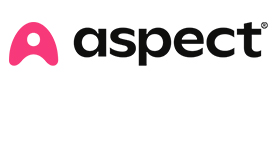Daniella Deloatch at Aspect defines FCR, explain how to calculate it, discuss why it matters in your contact centre, and provide strategies to improve this metric when results fall short.
Measuring success in a contact centre will vary depending on the business, but common key performance indicators (KPIs) like first call resolution (FCR) is a great place to start. FCR is a key contact centre metric that measures efficiency, success, and customer satisfaction.
What is First Call Resolution?
First call resolution measures the ability for an agent to solve a customer concern during the first interaction.
This can include calls, emails, chats, or other channels. This eliminates the need for follow-up interactions and indicates effective customer service operations.
How Do You Measure FCR?
FCR can be measured by taking the number of customer interactions resolved on the first call, and dividing by the total number of interactions. Multiply this result by 100 to get your FCR percentage rate.
FCR Formula
Interactions solved on the first call / Total number of interactions x 100
What is a Good First Call Resolution Rate?
A solid FCR rate is around 70% but standards will vary depending on the industry. Some industries like healthcare and technology involve more complex interactions that may require several customer calls.
However, some complex interactions can still be solved in one call, which could lead to a high FCR but a poor average handle time (AHT).
This is why it’s important to approach contact centre metrics with nuance, and understand that you could be looking at your KPIs through a narrow lens.
Why Do FCR Rates Matter in Contact Centres?
High first call resolution rates indicate several points of success in contact centres. Prioritizing FCR in your contact centre offers several benefits:
Higher Customer Satisfaction
High FCR rates contribute to greater customer satisfaction. When customers have to contact a business multiple times to solve a problem, they understandably become frustrated, leading to poor business perception and reduced customer retention.
High first call resolution supports both customer satisfaction and loyalty, ensuring your customers feel valued and well-served when they have an issue.
Improved Operational Efficiency
According to research from SQM Group, for every 1% increase in first call resolution, businesses can see a 1% decrease in operating costs.
High FCR rates mean lower repeat call volume, which can optimize resource allocation and ensure agents are helping more customers.
Boosted Agent Satisfaction and Performance
Successful contact centres prioritize both customer experience and employee experience. Low FCR rates can point to additional concerns that may be impacting employee experience.
These include poor training, burnout, and overall low morale. Addressing the root cause of low FCR can significantly enhance your overall employee experience.
Increased Revenue
According to the same SQM Group research, 95% of customers will continue to do business with organizations that have high FCR. Better FCR rates are part of higher service quality, which helps retain customers and increase revenue.
Common Barriers to High FCR Rates
We’ve already mentioned that FCR rates will vary depending on the industry, as some challenges require several customer interactions to solve. However, even the most complex customer challenges can be solved by a skilled and supported contact centre agent.
FCR can be negatively impacted by:
- Knowledge and skill gaps – A contact centre agent without the proper skills or training won’t be able to address a customer’s needs effectively, especially if it’s a complex interaction.
- System limitations – First call resolution isn’t just limited to the phone; it includes chat, email, and other channels as well. Outdated and disconnected technology can create barriers to solving a problem on the first try.
- Organizational policy constraints – Restrictive organizational procedures and policies can hinder first call resolution, often causing customers to call back multiple times in hopes of getting a different outcome.
- Process inefficiencies – Ineffective routing systems can lead customers to the wrong agent who isn’t able to address their challenges, leading to unnecessary transfers or repeat contacts.
These barriers can negatively impact customer experience and additionally cause frustration for employees.
Contact centres must prioritize finding strategies to improve metrics, which in turn improves both customer experience (CX) and employee experience (EX).
Strategies to Improve FCR Rates in Your Contact Centre
Improving first call resolution in your contact centre is one of many ways you can have happier employees, happier customers, and overall better business outcomes.
Consider the following strategies as you enhance processes in your contact centre:
Invest in Agent Training
Investing in employee coaching, training, and skill development is one of the most valuable investments a business can make.
Upskilling your team to handle customer interactions effectively will improve both FCR and overall contact centre operations.
Implement New Technology Solutions
Explore workforce management software that supports your operations with a unified ecosystem and customized employee interface, making it easier for agents to quickly and effectively assist customers.
Optimize Automation and Self-Service
Consider the ways that more intelligent workforce solutions can automate simple tasks for agents and offer self-service for easy customer inquiries. This frees up time for agents to handle more complex customer challenges.
Refine Quality Management Processes
Improving quality management practices in your contact centre can include targeting FCR, but ideally it should include taking a holistic approach to monitoring interactions for quality assurance and examining metrics comprehensively.
Streamline Processes and Update Policies
Agents can only do so much to solve customer problems when company policies are not CX-focused. Examine your contact centre’s policies and processes, especially those that are frequent barriers to FCR, and consider ways to update these to support customer needs and employee satisfaction.
Implementing a comprehensive workforce engagement management solution can effectively enhance workforce management, quality management, performance management, and employee engagement – ultimately improving your contact centre metrics across the board.
How to Measure FCR Success
As you implement changes into your contact centre processes, it’s important to create ways to measure success. It’s crucial to remember that one contact centre metric on its own is not an indicator of poor operations or performance. FCR is just a piece of the puzzle.
Establish Effective Metrics
Gauging success should not rely solely on improved FCR. Average handle time, abandon rate, and CSAT scores are just a handful of additional metrics that can provide holistic insights into contact centre performance.
Outline the KPIs that are most important to your organization and measure changes as new strategies are implemented.
Get Granular With These Metrics
Seeing improvements in KPIs doesn’t stop at observing numerical changes. Measuring customer satisfaction through detailed feedback mechanisms can offer insight into strategy success.
Include questions in surveys or other feedback collection tools that specifically ask whether an issue was resolved in a single contact and how satisfied the customer was with their interaction.
Monitor Repeat Contact Rates
Consider tracking the percentage of customers who contact your business multiple times about the same issue. This can be within a defined period (somewhere between 7-30 days) to provide additional insight into FCR changes.
This blog post has been re-published by kind permission of Aspect – View the Original Article
For more information about Aspect - visit the Aspect Website
Call Centre Helper is not responsible for the content of these guest blog posts. The opinions expressed in this article are those of the author, and do not necessarily reflect those of Call Centre Helper.
Author: Aspect
Reviewed by: Rachael Trickey
Published On: 23rd Oct 2025
Read more about - Guest Blogs, Aspect






 Building upon more than 50 years of industry-leading experience, Aspect is reimagining workforce management tools with a new approach to innovation.
Building upon more than 50 years of industry-leading experience, Aspect is reimagining workforce management tools with a new approach to innovation. 








